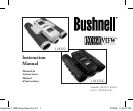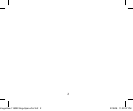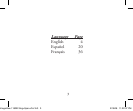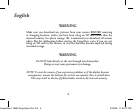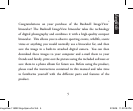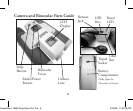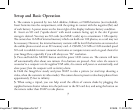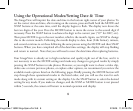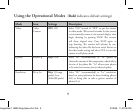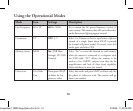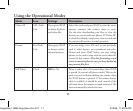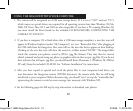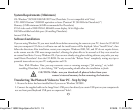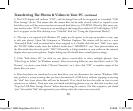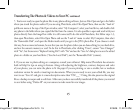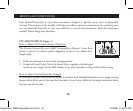
7
CAMERA PARTS
1. e camera is powered by two AAA alkaline, lithium, or NiMh batteries (not included).
Insert batteries into the compartment, with the springs in contact with the negative (flat) end
of each battery. A power meter on the lower right of the display indicates battery condition.
2. Insert an SD card ("upside down" with metal contacts facing up) in the slot if greater
storage is desired. You may use SD cards (not MMC cards) up to a maximum 1 GB capacity.
e camera has 16 MB of internal memory which can hold over 100 photos, so a card may not
be necessary. However, the internal memory contents will be lost if the batteries are removed or
die-unlike photos stored on an SD memory card. A 256MB, 512 MB or 1GB standard speed
SD card is available in most consumer electronics or computer stores and a is good choice for
your ImageView, especially if you will always use "Hi" resolution.
3. Press and hold the MODE button until the power LED comes on. e camera will turn
off automatically after about one minute if no buttons are pressed. Note: when the camera is
connected to a computer via the supplied USB cable, the camera will power on automatically, and
draw power from the computer with no battery drain.
4. Hold the ImageView steady and press SNAP to take a picture (or start/stop shooting a
video, when the camera is in video mode). e camera focus is preset to take sharp photos from
appoximately 35 feet to infinity.
5. When using a tripod, you can help avoid the effects of camera shake by plugging the
supplied remote shutter release into the jack next to the SD card slot, and using the button on
the remote rather than SNAP to take photos.
Setup and Basic Operation
ImageView 118322 Eng+Span+Frn 3L7 7 2/19/08 11:22:08 PM



